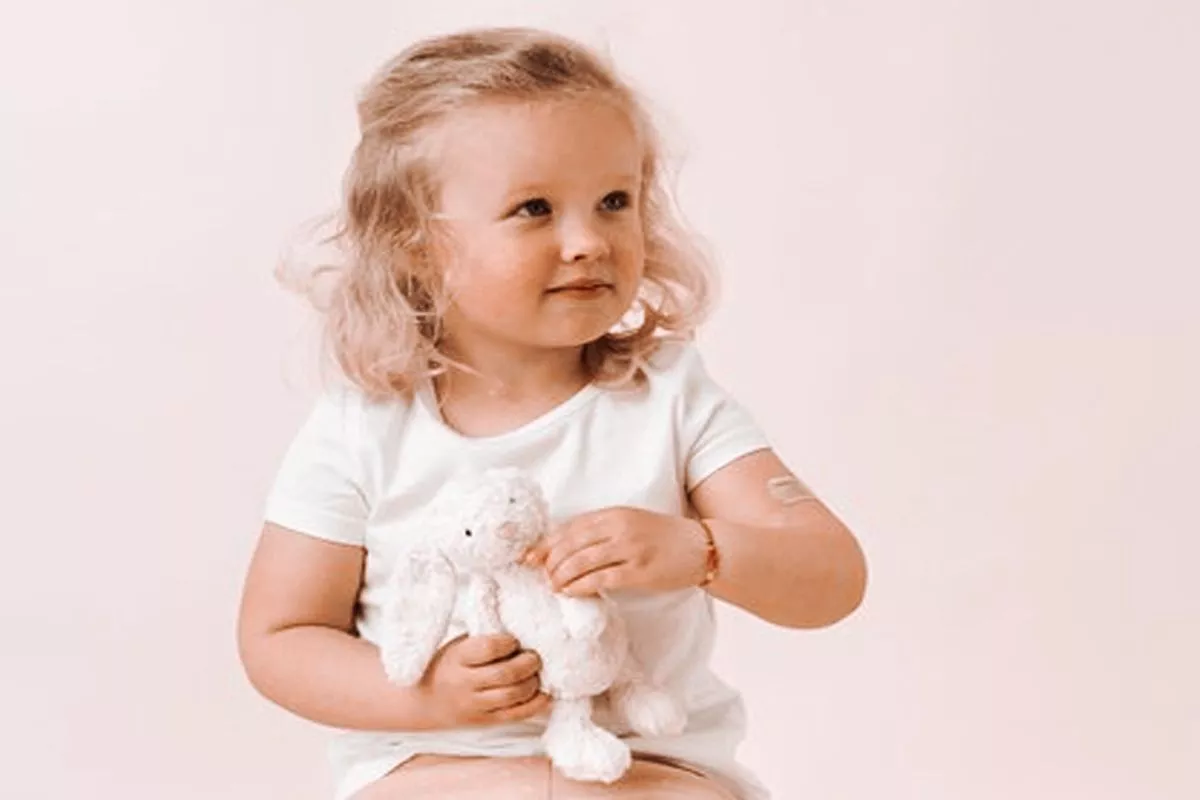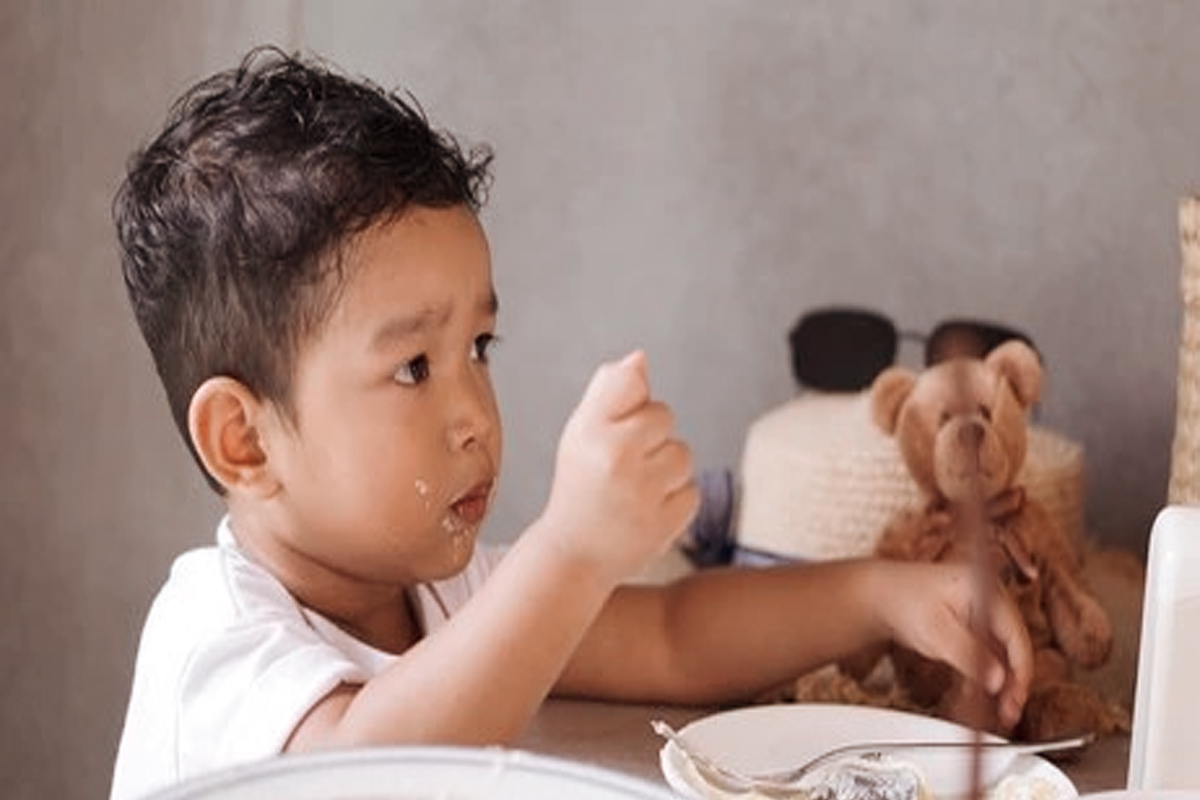As babies reach their eighth month, they continue to achieve significant developmental milestones. Many infants become adept at crawling and exploring their surroundings with newfound mobility. Some may even pull themselves up to a standing position, showcasing emerging strength. Object permanence becomes more refined, and babies develop a better understanding that objects exist even when hidden from view. Communication skills progress, with babbling and attempts at forming simple sounds. Fine motor skills advance, enabling them to grasp small objects with increased dexterity. Introduction to a variety of textured foods is common at this stage, contributing to the diversification of their diet. As always, individual development varies, and consulting with a pediatrician provides valuable insights into your baby’s unique journey.
Table of Contents
ToggleWhat are the Baby’s Development and Milestones on the 8th Month
The 8th month marks a period of remarkable growth and discovery for your baby. In this guide, we’ll delve into the intricacies of “Baby’s Development and Milestones on the 8th Month,” offering valuable information and practical advice to navigate this exciting time.
Physical Development
- Enhancing Motor Skills. Witness your baby’s newfound ability to sit up unassisted and possibly crawl. Encourage their motor skills through interactive play and exploration.
- Introduction to Solid Foods. As your baby continues to grow, the 8th month is an opportune time to introduce a variety of solid foods. Explore textures and flavors to stimulate their developing palate.
Cognitive Development
- Improved Object Permanence. Experience the wonder as your baby begins to understand that objects continue to exist even when out of sight. Play peek-a-boo games to enhance this cognitive leap.
- Responsive Communication. Notice increased babbling and attempts to mimic sounds. Foster language development by engaging in conversations and responding to their vocalizations.
Emotional and Social Development
- Developing Social Bonds. Witness your baby’s growing affinity for social interactions. Encourage bonding with family members and introduce playdates to foster social skills.
- Expressing Emotions. As emotional awareness blossoms, your baby may exhibit a range of emotions. Create a nurturing environment that acknowledges and supports their emotional expression.
What are the activities needed to Support your 8-month-old baby’s development
Introduction of Finger Foods
- Introduce soft finger foods to encourage self-feeding. This supports fine motor skills and hand-eye coordination.
Interactive Reading
- Engage in interactive reading sessions with colorful board books. Encourage pointing to pictures and responding to simple questions.
Stacking Blocks
- Introduce soft stacking blocks to enhance fine motor skills. Your baby may enjoy knocking down towers or attempting to stack them.
Imitative Play
- Encourage imitative play by providing safe household items like plastic bowls and spoons. This fosters a sense of exploration and imitation.
Crawling Challenges
- Create a safe space with cushions and pillows to encourage crawling. Place toys strategically to motivate movement.
Water Play
- Allow supervised water play during bath time. Provide cups or toys to splash and explore, enhancing sensory experiences.
Mirror Interaction
- Use a baby-safe mirror for your baby to see their reflection. This not only entertains but also promotes self-awareness.
Soft Ball Rolling
- Roll a soft ball back and forth with your baby. This activity encourages tracking movements and hand-eye coordination.
Music and Movement
- Play music and engage in simple movements together. Clap hands, sway, or dance to the rhythm to enhance gross motor skills.
Encourage Standing
- Support your baby in standing positions, holding onto furniture for balance. This helps strengthen leg muscles.
Sorting Games
- Provide toys for sorting and nesting. Your baby may enjoy putting objects in and out of containers, enhancing problem-solving skills.
How to Feed Your 8-Month-Old Baby
Feeding your 8-month-old baby is an exciting journey as they explore new tastes and textures. As your little one continues to grow, their nutritional needs evolve. In this guide, we’ll delve into helpful tips and strategies for nourishing your 8-month-old, ensuring a positive and healthy feeding experience.
The transition from Breast Milk or Formula
- Gradual Transition. While breast milk or formula remains a crucial part of their diet, you can gradually introduce a variety of solid foods. Offer solids after a milk feeding session to ensure they get the necessary nutrients.
- Hydration. Introduce a sippy cup with water during meals to promote hydration. Limit juice intake and prioritize water to instill healthy drinking habits.
Transitioning to Solids
- Introduction of Textures. At 8 months, your baby is ready for more textured foods. Introduce finely mashed or minced foods to encourage chewing and swallowing.
- Finger Foods. Begin incorporating finger foods like soft fruits, cooked vegetables, and small pieces of well-cooked meats. This promotes self-feeding and enhances fine motor skills.
Balanced Meal Planning
- Variety of Nutrients. Ensure a well-balanced diet by offering a variety of foods from different food groups. Include grains, fruits, vegetables, protein, and dairy to meet your baby’s nutritional needs.
- Introduce New Flavors. Experiment with different flavors and spices to expand your baby’s palate. Gradually introduce new foods to monitor for any allergies or sensitivities.
How Much Sleep Does Your 8-Month-Old Baby Need
Nighttime Sleep
- On average, an 8-month-old requires about 11 to 12 hours of uninterrupted nighttime sleep. This contributes to their overall physical and mental development.
Daytime Naps
- In addition to nighttime sleep, aim for two to three daytime naps. Each nap may last anywhere from 1 to 2 hours, promoting optimal rest.
Addressing Sleep Challenges
- Night Wakings. It’s normal for babies to wake up during the night. If your baby wakes up, offer comfort without stimulating activities, helping them self-soothe back to sleep.
- Sleep Regression. Some babies may experience sleep regression around the 8-month mark. Be patient, maintain consistency in your routine, and seek advice from your pediatrician if needed.
Day in the Life of an 8-Month-Old Baby
Feeding
- Baby typically needs to eat around six times a day, including nursing sessions and/or bottle feeds, three meals, and three snacks
- It is recommended to introduce soft foods such as yogurt, oatmeal, mashed banana, mashed potatoes, or lumpy pureed vegetables
- At this age, babies need between 750 and 900 calories each day, with about 400 to 500 calories coming from breast milk or formula
Sleeping
- 12-16 hours per day, including a stretch of 9 to 12 hours at night
- 2 naps during the day
- Separation anxiety is a common issue that can cause sleep disruptions in 8-month-old babies
Bathing
- A bath 2-3 times a week is generally enough to keep your baby clean
- The recommended duration for a baby bath is about 5-10 minutes, especially if your baby has dry or sensitive skin
- Always stay with your baby and never leave them unattended in the bath
Changing Diapers
- Babies at this age may need their diapers changed 6 to 8 times a day
- Always keep a hand on your baby during the diaper change to prevent them from rolling off the changing surface
Playing
- Peekaboo. This classic game is always a hit and can be played in various ways. For instance, you can take turns “finding” each other under a soft cloth, which can be entertaining and help with cognitive development.
- Encouraging Movement. At this age, babies are often getting ready to crawl, and they may be learning how to push up onto their hands and knees. You can encourage them further by holding a toy or other object just beyond their reach, which can motivate them to move and explore.
- Exploring Sounds and Words. Babies at this age are continuing to develop their language and communication skills. You can engage them by playing with words and sounds, which can help boost their language skills and cognitive development.
Fun Facts
- At 8 months old, babies are more curious and active than ever before. Their muscles are getting stronger, their balance and coordination are improving, and they’re getting ready for crawling, cruising, and eventually walking
- It’s also beneficial for 8-month-old babies to spend time with others and meet new people. Taking them to the park, playground, or play dates can help them socialize and interact with other children and parents
Baby’s Health at 8-Month-Old
As your baby approaches the eighth month, their health and development continue to be a top priority. Here are key aspects to consider for ensuring their well-being:
Nutritious Diet
- Introduce a variety of age-appropriate solid foods to support their growing nutritional needs.
- Offer a mix of fruits, vegetables, cereals, and proteins.
- Continue breastfeeding or formula feeding as recommended by your pediatrician.
Hydration and Feeding Schedule
- Establish a regular feeding schedule with meals and snacks.
- Encourage self-feeding by introducing finger foods and appropriate utensils.
- Provide water in a sippy cup during meals to keep your baby hydrated.
- Monitor their water intake, especially during warmer weather.
Sleep Routine
- Maintain a consistent bedtime routine to promote healthy sleep patterns.
- Ensure a safe sleep environment in the crib, avoiding soft bedding and toys.
Physical Activity
- Encourage physical activity and exploration as your baby becomes more mobile.
- Create a safe play space with age-appropriate toys to support their motor skills.
Health Check-ups
- Schedule regular check-ups with your pediatrician to monitor growth and development.
- Keep up with vaccinations as recommended by your healthcare provider.
Dental Care
- Begin cleaning your baby’s teeth with a soft toothbrush and water.
- Avoid putting them to bed with a bottle to prevent tooth decay.
Safety Measures
- Babyproof your home to ensure a safe environment for your exploring baby.
- Supervise closely during playtime and mealtime to prevent accidents.
Communication
- Encourage babbling and respond to your baby’s attempts at communication.
- Read to them regularly to foster language development.
- Arrange playdates or engage in activities that promote social interaction with other babies.
Emotional Well-being
- Provide a secure and loving environment to support emotional development.
- Respond promptly to your baby’s cues and offer comfort when needed.
Items Needed on the 8th Month of Your Baby
Sleeping Gear
- Crib or playpen
- Fitted sheets
- Sleep sacks or lightweight blankets
Health and Safety
- Baby-safe sunscreen for outdoor protection
- Baby thermometer
- Baby-safe nail clippers
- Basic baby first aid kit
Play and Development
- Age-appropriate toys to stimulate cognitive and motor skills
- Interactive books for sensory exploration
- Playmat or activity gym for floor play
Babyproofing Items
- Safety gates for stairways
- Outlet covers and cabinet locks
- Soft corner protectors for furniture
Feeding Chair or Booster Seat
- Supportive chair for meals, if not already in use.
Baby Carrier or Sling
- Continue using a comfortable carrier for on-the-go convenience.
Stroller
- Lightweight and easily maneuverable for outings.
Life as a Parent on Baby’s 8th Month
The 8th month of your baby’s life is an exciting time as they continue to develop and grow. Here are some highlights of what you can expect as a parent during this time:
- Your baby is becoming more vocal and may be using two-syllable utterances to indicate things in their life.
- Your baby is having a growth spurt in their brain, which increases their memory and helps them form strong attachments to their favorite people, toys, and books.
- Your baby is likely crawling, pulling up to stand, and cruising around using furniture for support.
- Your baby is having an increasing variety of foods, including baby cereal, fruits and vegetables, and mashed or pureed meats.
- Your baby is becoming more curious and aware of their surroundings, which means you may need to take your babyproofing up a notch.
- Your baby is starting to understand the meaning of a few basic words and can follow simple commands.
- As a parent, you can engage your baby through talking, playing, singing songs, reading books, and playing games that help explain concepts like cause and effect.
Remember that every baby is unique, and their development and needs may vary. It’s essential to consult with a pediatrician for personalized advice on your baby’s health and development.
Checklist for the 8th Month of Your Baby
Communication
- Babbling. Notice increased babbling and attempts at imitating sounds.
- Responding to Name. Look for your baby to respond when you call their name.
Social and Emotional Development
- Stranger Anxiety. Your baby may start showing signs of stranger anxiety.
- Playing Peek-a-Boo. Engage in simple games like peek-a-boo to encourage social interaction.
Safety Measures
- Babyproofing. Ensure that your home is babyproofed, especially in areas where your baby is becoming more mobile.
- Supervision. Keep a close eye on your baby, especially as they explore new spaces.
Reading Together
- Continue reading together, incorporating interactive books, and pointing out objects in pictures.
Playtime Activities
- Interactive Toys. Provide toys that encourage problem-solving and exploration.
- Play Dates. Consider arranging playdates with other babies to encourage social interaction.
Pediatric Checkup
- Schedule a regular checkup with the pediatrician to monitor your baby’s growth and development.
Encourage Independence
- Allow your baby to self-feed with finger foods to promote independence.
- Offer safe opportunities for them to explore their surroundings.
Emotional Connection
- Maintain a strong emotional connection through cuddling, hugs, and positive interactions.
Last Updated on January 15, 2024
Written By
With a solid foundation in family dynamics, child development, and a knack for assessing products, our content is built on a strong grasp of our topics. We use trustworthy sources, seek advice from experts, and stay current with the latest happenings in our fields. We always give credit to our sources, reveal any possible conflicts of interest, and deliver info in a truthful and unbiased way. Follow us on Facebook or join our Facebook Group.
Start your journey to confident parenting
Join over 2,000+ parents who receive free practical advice and tips from Joyful PH. Unsubscribe anytime.
You may also like
Toddler’s Development and Milestones at 24th Month
A two-year-old's growth and achievements at 24 months are remarkable. Toddlers…
Toddler’s Development and Milestones at 23rd Month
In the 23rd month, toddlers exhibit significant developmental strides. Their…
Toddler’s Development and Milestones at 22nd Month
At 22 months, toddlers make strides in independence, speech, and motor skills.…
Toddler’s Development and Milestones at 21st Month
During the 21st month, toddlers continue their dynamic development. Language…
Toddler’s Development and Milestones at 20th Month
At 20 months, toddlers exhibit remarkable progress. Their language skills…
Toddler’s Development and Milestones at 19th Month
A toddler at 19 months undergoes significant development. Language skills…







